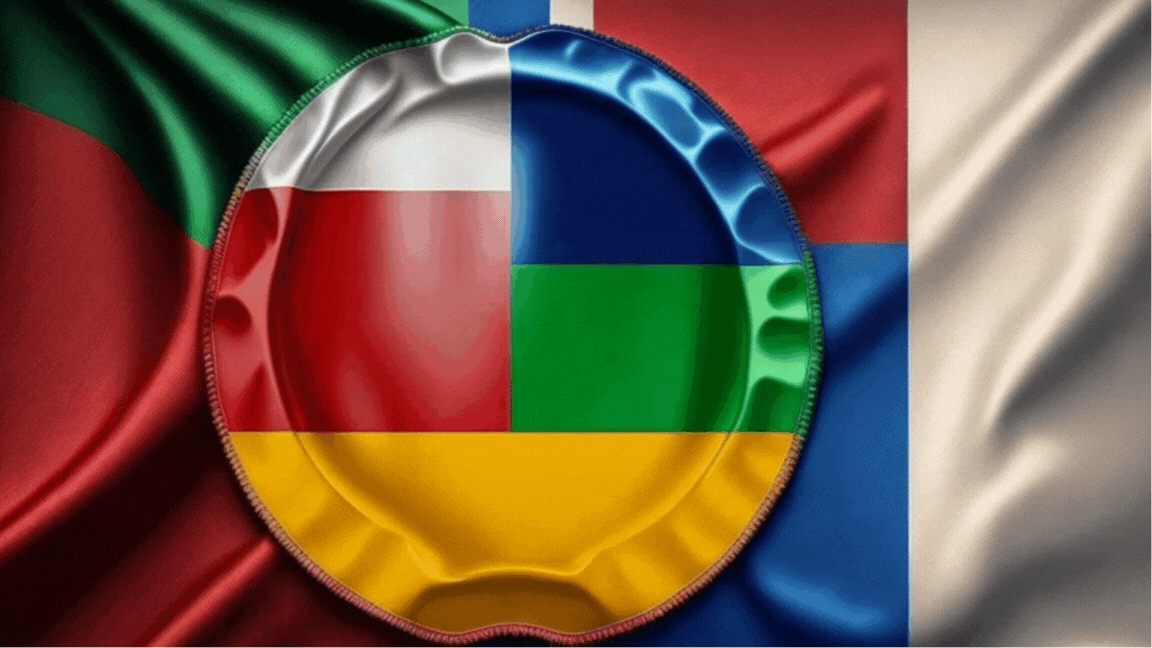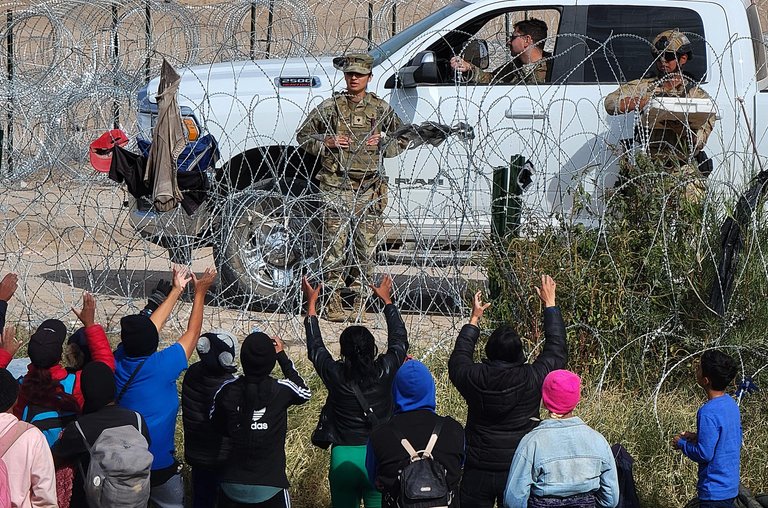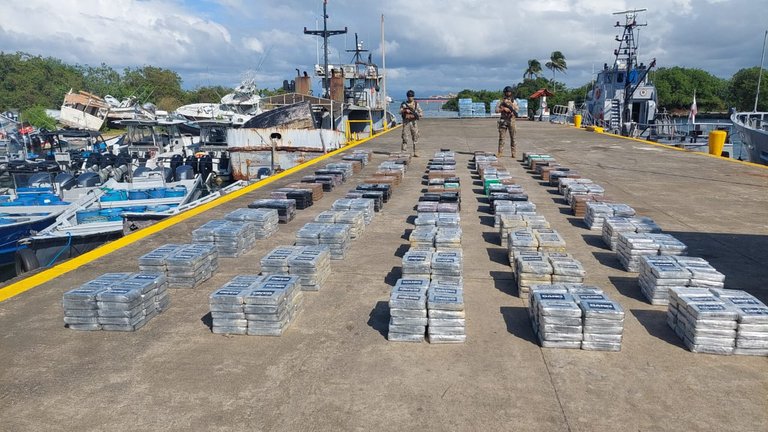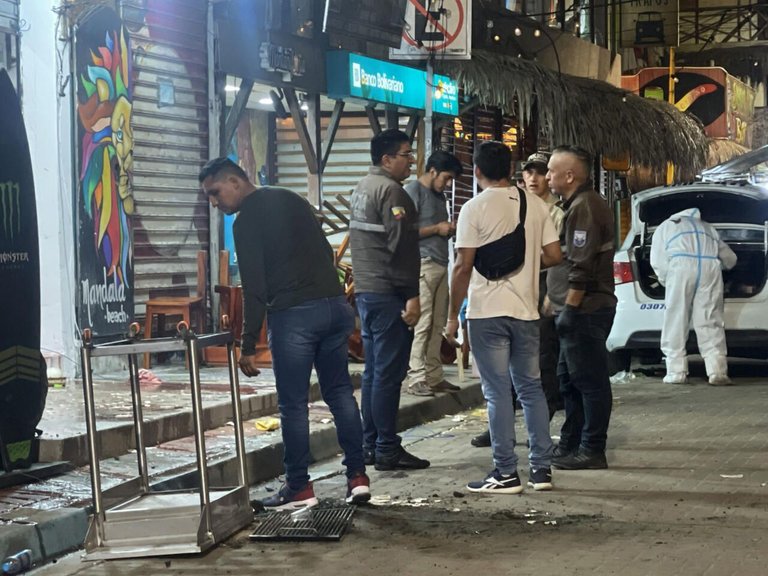The Latin American Report # 155

31 migrants kidnapped in Mexico
In general, the year began as it ended in Latin America. Of course, there were celebrations and fireworks, and for sure there is life in the region beyond the dynamics we usually comment on here, but I focus them precisely to show those spaces that have no light, full of vulnerable and violated people. So there is no doubt about the incalculable debts we have in the fight to eradicate scourges such as poverty—which "embraces" millions—, corruption, and organized crime. From Cuba, indirectly, it also serves me to expose that, although we have very serious problems, things are not going so well outside, and sometimes they even go worse. As far as I know, I have a family member and two good friends in Mexico, waiting to get a ticket through the CBP One application to enter the United States. Any of them could have been on a bus that was hijacked in Tamaulipas last Saturday, near the Rio Grande, and whose passengers, except five Mexican citizens, ended up kidnapped. The lack of protection and dehumanization characterize the irregular migration of hundreds of thousands of individuals fleeing the crisis. The tragedy has become naturalized, and it still does not seem to be painful enough to strike a blow on the table and say enough is enough (a Honduran baby girl of only five months died after slipping from the arms of her mother, who together with her father was trying to board one of the cargo trains known as La Bestia).
 The Biden administration appealed to the Supreme Court to destroy the razor wire fencing installed by Greg Abbott (source of the image).
The Biden administration appealed to the Supreme Court to destroy the razor wire fencing installed by Greg Abbott (source of the image)."We received a report from the driver of a Grupo Senda bus that he had been intercepted by five vehicles" driven by armed men, authorities told a local television station about the kidnapping. Although it took place on Saturday, it was not until Tuesday that it hit the news. According to a report by the International Organization for Migration, in 2022 the violent northern Mexican zone constituted "the most dangerous land migration route in the world", with nearly 700 dead or missing. "The search is already underway from the first moments... I believe that tomorrow we will have more information", said the Mexican president about the event. The end of 2023 and the beginning of 2024 have been quite dismal for AMLO, between multiple killings and now a kidnapping of migrants. Five Venezuelans, including two minors, were released, thanks to a chance encounter between National Guard troops and an advance guard of the criminals, who fled leaving them in the car where they were being transported. At the time of going to press, the whereabouts of the remaining 26 kidnapped migrants were unknown, although communication from the Government has been erratic and it is not excluded that the rescued Venezuelans were not part of the 31 migrants kidnapped on Saturday.
Migration authorities reach consensus with Christmas caravan
Most of the more than 5,000 migrants who left Tapachula on Christmas Eve accepted an offer from the Mexican National Migration Institute, which will activate an expedited procedure to regularize them, one of the main demands of the caravan. In truth, a good part of the migrants wish to obtain official documents to be able to move more safely through Mexico on their way to the United States, but in any case, some are even considering the option of settling in the Aztec nation. "Yes, we are going to go do the process, because we are interested in being in Mexico legally, we have already walked a lot, we have suffered, our feet hurt, and walking 48 kilometers is not easy, we accept the INM's proposal to do the process and thus continue our journey, it is the best option", a Honduran migrant told EFE. When he talks about walking 48 kilometers he is referring to the distance between the point where the caravan stopped and the potential next one in the now-interrupted journey, because in total they advanced more than 100 kilometers.
A record of drugs and death
Yesterday new summaries were published on how bloody 2023 was in the region, and also concerning the fight against drug trafficking. Nearly 120 tons of drugs were seized in Panama, most of it cocaine, amounting to more than $27 million in losses for traffickers. Still in the last hours of the year, members of the National Aeronautical and Naval Service seized more than 2,100 packages of drugs during a maritime operation. They did not specify the weight of the seized merchandise, but if we go by the standard that each package usually contains 1 kilogram, we would be talking about more than 2 tons. In Venezuela, authorities seized just over 52 tons of drugs in 2023, with about 84% corresponding to cocaine, followed by marijuana with over 8 tons.
 Drugs seized over the weekend in Panama (source of the image).
Drugs seized over the weekend in Panama (source of the image).In terms of violent deaths, there were more than 3,000 homicides in Honduras last year, although we are talking about 630 less than in 2022. This is still a very high rate of 31 per 100,000 inhabitants (according to the United Nations, the "tolerable" homicide rate should not exceed 9 per 100,000 inhabitants). Costa Rica, for its part, closed 2023 with a troubling record of more than 900 homicides, the worst figure in its history, representing an annual increase of close to 40%. Drug trafficking and the influence of Mexican cartels, which have exported their methods to the once peaceful Central American nation, are behind this dangerous dynamic that threatens to become entrenched. Fights between criminal gangs are responsible for 70% of violent deaths, according to judicial authorities. As is also the case in Ecuador, coastal regions such as Limon are the most violent, with a shocking homicide rate of 45 per 100,000 inhabitants, although in the central province of San Jose, the increase in homicides was the most brutal, at 86%.
Hitmen still rampant in Ecuador and Colombia
Sadly, our prediction that more violent deaths could still occur before the end of the year in Ecuador came true. Nine people were killed in two unrelated armed attacks, with the most tragic incident occurring in the province of Guayas. There, six people lost their lives at the hands of hired killers on the last day of 2023, while in Sucumbios province three individuals involved in mining were also killed. Impunity is alarming, with only 7% of last year's crime cases solved. I would like to recall that the shameful assassination of a presidential candidate, as well as those of seven prisoners linked to that event, are included among the unsolved cases.
 Authorities and some civilians at the site where a shooting killed six people in Durán, Guayas province, Ecuador (source of the image).
Authorities and some civilians at the site where a shooting killed six people in Durán, Guayas province, Ecuador (source of the image).In Colombia, a councilman was shot by assassins on December 31 and died early yesterday morning in the municipality of Túlua as a result of the fatal shots he received. Eliecid Avila was about to begin his term as president of the city council in 2024. A reward of about $12,900 was offered for information leading to the assassins, and the option of militarizing the municipality is being evaluated. The hypothesis is that the order to kill Avila came from the prison. Let's remember that at the end of December, a mayor was also shot dead in Colombia, which tells us how embarrassing it is for the Colombian State the impunity with which organized crime operates there.
And this is all for our report today. I have referenced the sources dynamically in the text, and remember you can learn how and where to follow the LATAM trail news by reading my work here. Have a nice day.

